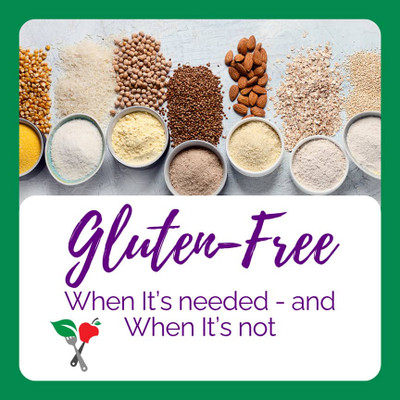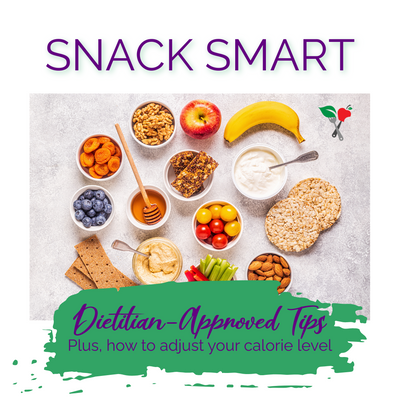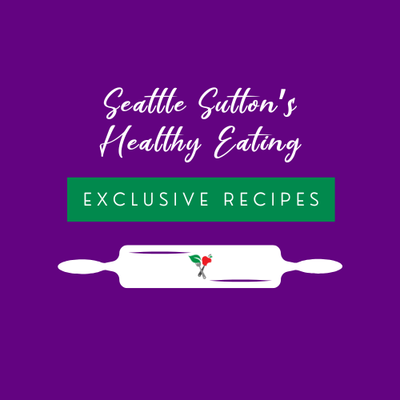When To "Unfollow" A Diet Trend
When looking on social media you will find many self-proclaimed nutrition experts touting the latest diet trend. Many of these individuals are selling a product and are looking for your money. Others have strong beliefs in their way of eating and want to convince you that their way of eating is the best and ONLY way. And then there are bloggers and influencers who try to be inspirational but end up leaving followers feeling defeated, self-conscious, and anxious about their decisions. All too often, headlines, fake news, and food scares go viral, spreading faster than qualified health experts can respond. When it comes to advice on diet, exercise, and lifestyle it is important that information is accurate but also leaves you feeling empowered and positive about the steps needed to lead a healthier lifestyle.
Below are red flags to look for when sorting through social media posts on nutrition and diet trends and when to know it is time to click "unfollow."
Red Flag #1: People selling diets and supplements.
We all know those ‘friends’ that you haven’t heard from in years and then all the sudden they are messaging you and sending information on the new diet or supplement they are using. Oftentimes with these types of products they are trained to use social media to pitch their products and portray an image that the supplements or diet has perfected their life in every way possible. They are trained in nutrition by the company whose product they are selling so any information they have is biased and more of a sales pitch than facts backed by science. As a Registered Dietitian I have seen misinformation and harmful information being relayed to potential customers with these types of companies. Best to talk to an expert!
Red Flag #2: Social media accounts that promote “quick-fixes” and “miracle” products.
While the lure of an easy fix can be tempting, many of these products or ideas are based on unsound nutrition advice, won’t live up to the expectations, and may actually be dangerous. Taking large amounts of supplements can be toxic, some products can interact with medications you are currently taking or have bad side effects, and many are full of empty promises. These accounts may also promote a way of eating rather than supplements, such as in the recent celery juice frenzy. Claims that one item will ‘cure’ all of your health ails should come with a healthy amount of skepticism. Take time to be well informed before you invest in any product, treatment, or service. Remember the old advice…when it sounds too good to be true, it probably is!
Red Flag #3: Accounts that bully, shame, or demonize.
Everyone is unique and has different needs, struggles, strengths, and lifestyle which means that one approach will not work for everyone. Certain social media posts promote one way of eating and demonize all others. Some of these accounts send messages that maintaining their rules/restrictions should be prioritized over everything else while cherry-picking nutrition data to support their claims. Making a diet or exercise program a guide for your moral compass can lead to big problems with disordered eating beliefs and low self-esteem. And if a social media account promotes looks or weight over health…unfollow! Your body image will thank you! Finding changes that you can make, maintain and feel good about should be flexible and work for YOU! If an account is spewing out negative messages or leaves you feeling down on yourself, it is not worth your time.
Red Flag #4: Jumping on the latest diet-craze bandwagon.
Diet trends come and go quicker than most of us can keep up with. On social media it is common that these trends get a lot of attention before there is adequate science to support their claims. Nutrition experts know that many of these diet trends are fleeting but also will go back to the research to see what claims hold up and which do not. Most of the time, the science is lacking or very minimal with these diet trends. Some social media accounts jump from trend to trend which may keep their page exciting but sound nutrition advice takes time to develop and generally doesn’t change drastically over time. There are no miracle foods when it comes to our health and if we focus on the latest craze our body may be missing out on important nutrients. Listening to your body’s cues, focusing on variety, adding lots of colors, and eating more whole foods are a nutrition trend that won’t go out of style.
Keep these red flags in mind when looking at posts on social media to determine if the nutrition advice is worth following or not. With so many unqualified individuals making nutrition claims online, it’s important to be a smart consumer and know when the account is more hype than help.

Interested in eating healthy? Hungry for more?








 Weight Loss
Weight Loss Health & Wellness
Health & Wellness Diabetes
Diabetes Heart Health
Heart Health Motherhood & Family
Motherhood & Family Dietary Restriction
Dietary Restriction Other Health Conditions
Other Health Conditions About SSHE
About SSHE


